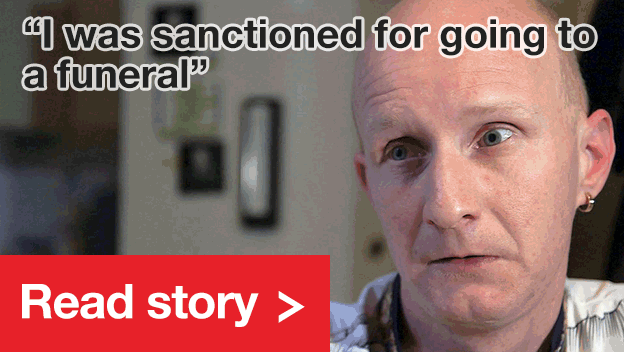You're on the verge of losing everything - but you don’t understand why
- Published
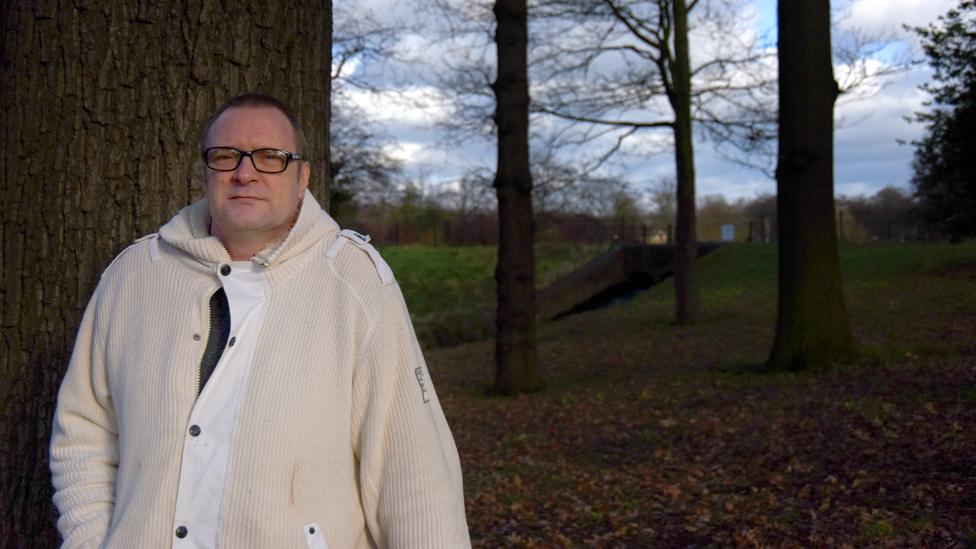
A run of bad luck leaves one man struggling to make sense of the UK benefits system. Very soon he is left with no income and at risk of losing the roof over his head. Can he find his way through a bafflingly complex maze of rules? Put yourself in his shoes.
Your name is Tony Rice. You're the sort of bloke who gets along with everyone. Always making people laugh. Ever since you left school you've been in and out of all sorts of jobs. Manual labour, mostly - builder, dustman, crane driver, painter and decorator. Hawker Siddeley, the aerospace company - you like it there, until the factory shuts.
You split up with your girlfriend so you ask your mum to put you up until you can sort out a flat. Save a few quid. You're very close to your mum and dad. They're your best friends, really. Your dad has lung cancer and needs a bit of looking after. You take him for a drive most days because he doesn't like staying in all the time. He's like you, not a man to sit about. At one time he worked three jobs, all at once. Still does half an hour each morning in the garden.
So you're back in the council house in Chingford, north-east London, that you've called home since you were eight years old - even after you left. Your sisters have moved out and had kids of their own but you want to take care of your mum and dad, same as they took care of you.
And then you get a big shock. Suddenly, unexpectedly, your mum dies in hospital, two weeks after she has a replacement heart valve fitted. It's the day before she's supposed to get out.
Her death is hard for you to accept. You don't know how to process your grief. All through your 43 years on Earth so far you've always tried to be tough. You don't cry at the funeral. You want to be strong for your sisters. You want to just get on with it. But the depression creeps up and up on you.
It's just you and your dad in the house now. You've become his full-time carer - there's no-one else left to look after him now mum is gone. Anything he needs, you do it for him. His cancer spreads from his lungs to his other organs until, inevitably, it kills him.
Two parents gone within two years. And now you're alone in the house.
The council says you have to move to a flat, so you pack up and go. You like it. Decent size, first floor, communal gardens, nice neighbours. It needs doing up but you aren't afraid of putting a bit of work in.
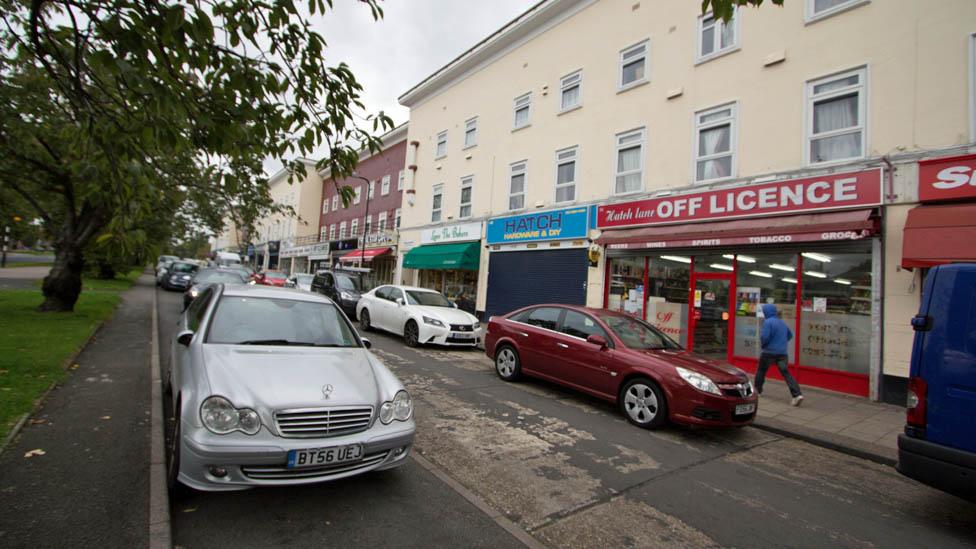
You want to go back to work again so you go door-to-door selling Avon products. You start to notice your neck feels stiff. Your back, too. Must be from all that physical labour over the years. Plus a couple of road accidents you had when you were younger. Once a driver did a U-turn in front of you when you were on your motorbike. Your knees hit the car first then you went over the roof and landed on your head. Years ago, this was.
There's this bloke you get to know. Friend of a friend. You fetch his paper every morning. Sometimes he cooks for you in return. One day he invites you in for a drink. You go indoors and take a seat. There's another fella there. You accept a drink from the friend of a friend. He's been drinking already. Then he starts getting a bit loud, so you ask him to keep it down.
He doesn't like that. Comes over and hits you. You're still in your chair. You get up and have a pop in retaliation, then the other fella separates you. There's an unopened packet of knives in the room. You see it happening in slow motion. The friend of a friend selects a knife from the packet. You don't think he's going to use it, but then he does. He stabs you in the thigh. You try to grab the knife to defend yourself. You get cut again in your arm and around your eye.
Right, you say. I'm getting out of here. You turn to leg it. "Don't tell anyone about this," he says, and then he sticks the knife in your shoulder blade. That's the worst one. You thought this bloke was all right. You thought he was your mate. You got that wrong.
You go to hospital. They fix you up and send you home but the pain is still bad. Your back and your neck. What's worse, you can't stop thinking about the attack. Reliving it over and over. Lying awake.
The friend of a friend is jailed for the stabbing but that doesn't stop your paranoia. You walk down the road looking at every single car that passes, every motorbike. They might be coming for you. You see a pizza delivery bloke. He's looking for an address. You think he might be a hitman coming after you. He stops and looks at you. You think you're going to be attacked again. You don't trust anyone.
You used to be really fit. Cycled all the time. Now you can't. And you love your cycling. All your muscles lock up. Every time you wake up in the morning, you're aching.
You go to your GP. He examines you and signs you off work for six months. He says you have post-traumatic stress disorder and depression. There's no way you can work. You're also diagnosed with muscular arthritis. That, plus the scars from the knife attack, means it's painful to turn your neck or lift your arms above shoulder height.
You're on something called Employment Support Allowance. ESA. Minimum-level state benefits, that means. It's for people who can't work because of ill health or disability. You get housing benefit as well, which goes straight to the council to pay for the flat.
Then a few weeks later the Department for Work and Pensions (DWP) calls you in.
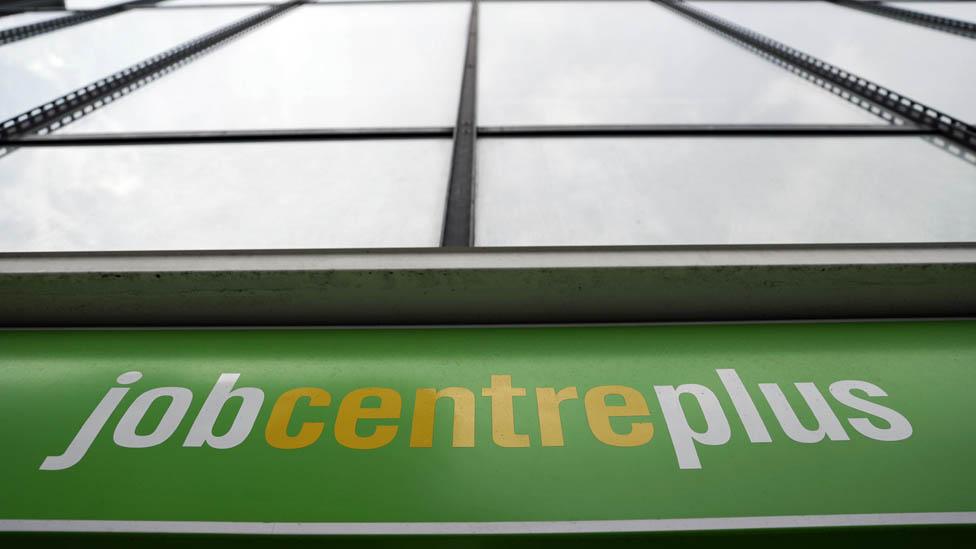
It's a work capability assessment, they say. There's a form to fill in first about what you can and can't do. Can you pick up a £1 coin? Can you raise a hand to your head? Well, just about, though it's painful. You go along and the person assessing you says you're fit for work. You say you're not. Your GP agrees that you're not. But the assessor's opinion outweighs any other. Your benefits are stopped - both the ESA and the housing benefit.
You've got no money coming in. Nothing. You're falling in arrears with your rent. Friends are feeding you. You go to your local food bank. It's embarrassing. You don't like it. But the one round the corner isn't too bad. They don't ask any questions. You just go there and get your stuff. You push your bike, the bike you can't ride any more. They give you pasta, potatoes, tins of soup, couscous - you don't like the couscous much but you take it anyway, it's not like you can afford to be choosy. Then you hang the shopping bags on the bike and push it home in the rain.
You're losing weight because of the lack of food. You're still in pain. You're still depressed. You used to be really outgoing. You liked talking to people and going out and doing stuff but now you're just not in the mood.
The council apply for a possession order of your flat. They go to court and get one, suspended. They won't take the flat off you if you can make payments towards the arrears - £300 a month.
You keep going back to the Job Centre and asking if they can do anything for you. And finally - after seven months with no money coming in whatsoever, the DWP tells you that you can go on a new benefit called Universal Credit - the part of it that replaces Jobseeker's Allowance. They told you before you weren't eligible, but apparently now you are. You don't understand what's changed. There's no explanation. It seems as though there's been a mistake somewhere.
Now you get £414.33 for your rent and £317.82 for living costs. It's different from the benefits you were on before. Before, the Housing Benefit was paid direct to the council for your rent. Now, you get the housing costs and the living costs paid directly to you in one lump sum - one of the features of Universal Credit introduced by your local MP, Iain Duncan Smith.
Except you don't realise this - that the money is no longer going direct to the council and you need to sort it out yourself. No-one explained it to you, not in a way you understood, at least. You end up going even further into arrears with the rent.

Universal credit
A new benefit for working-age people that replaces six benefits - including Jobseeker's Allowance and Housing Benefit - and merges them into one payment
It was designed to make claiming benefits simpler, and to ensure no-one is better off claiming benefits than working
But it has proved controversial from the beginning, with reports of IT issues, massive overspends and administrative problems

Because you've been assessed fit for work, you're supposed to spend 35 hours a week looking for a job. But when the DWP summon you to a jobseeker's meeting to ask what you're doing to find work, you don't get the message. No-one tells you. There's no letter - not one that reaches you, anyway. It could be that they've sent you the message electronically - but you're no good with computers. You don't have one at home and the sole time you tried to use one down the Job Centre you didn't know what half the keys did.
So because you don't turn up to the jobseeker's meeting, you get what is called a sanction - that means they stop the £317.82 for monthly living costs.
You know nothing about this. You don't actually work out that you've been sanctioned for 212 days. You just know there is less money coming in.
All you have to live on is the £414.33 that's supposed to be for housing costs. But you're still paying the council £300 a month for the earlier rent arrears - which means you are left with £114.33 a month to subsist on. That's £26.38 a week.
You can't survive on that. And, once again, you can't pay the rent.
You're back to relying on food banks and donations from friends. You take the bracelet you wear around your wrist to the pawnbroker.
It's still not enough.
It seems that every time you go to the Job Centre, someone gives you a different story about what you should be doing. You try to phone the DWP to sort things out, but no-one seems able to help you there, either. Each phone call costs you something like £8 - the claimant helpline is premium rate from mobiles and you haven't got a landline.
Your rent arrears are now in excess of £10,000.
The council seeks a court order for your eviction. You're looking at spending Christmas on the streets.
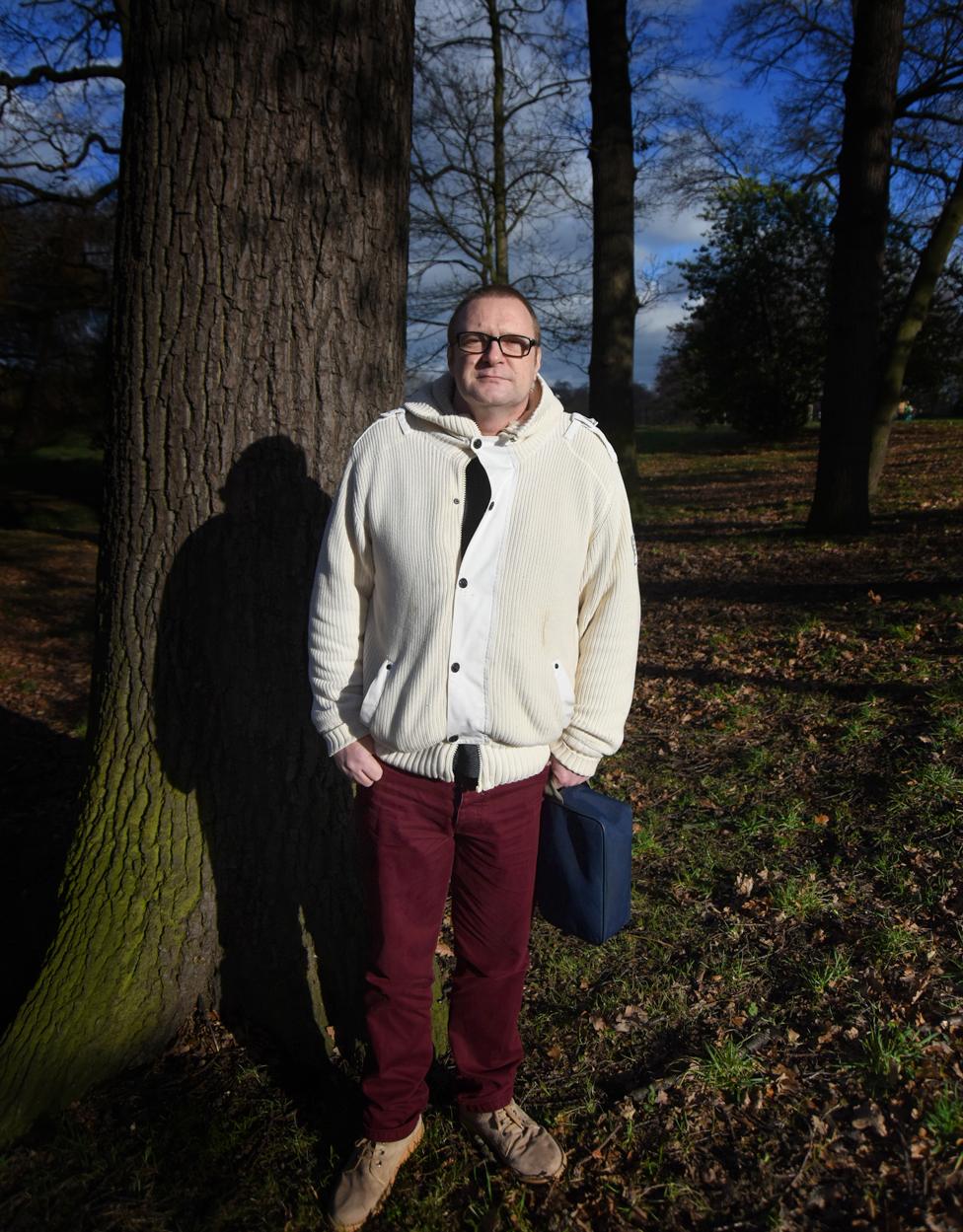

You go to see a legal adviser. You haven't been able to see a lawyer until now, because benefits law isn't covered by legal aid any more, but some housing law is.
Your lawyer and a Citizens Advice caseworker can't make head nor tail of what's going on at first. Eventually, they work out that you've been sanctioned. They write to the Universal Credit department repeatedly to ask for an explanation - it takes a long time for them to figure out why you have been sanctioned and what you could do to get the sanction lifted.
But first you have to go to court to try and avoid eviction.
Your legal adviser is a man called Simon Mullings. He tells you how serious the situation is. He's not going to sugar-coat it for you. The council are trying to be reasonable, he says, but they have a statutory duty to recover the lost rent. If you lose this case you'll be homeless.
You sit through three very scary hearings as your legal team argues your case.
You have a barrister, Mary-Rachel McCabe. She tells your whole Kafkaesque story to the judge.
"Tony has been failed by a malfunctioning system," she says. "From the moment Tony claimed Universal Credit last year, he suffered the consequences of its arbitrary rules and procedures, and so was immediately plunged into further rent arrears and other debt."
The judge is visibly shocked. The system is "appalling", she says.
McCabe tells the court that the sanction and the finding that you are fit for work are now being challenged with the help of a benefits adviser from Citizens Advice.
If that's successful it will give you an extra £317.82 a month and allow you to pay your rent. A new court hearing is set for May. That's a reprieve. If you can show a pattern of payment by then, maybe you won't be evicted.
Mullings, your legal advisor, tells you it might not feel like it, but you're one of the lucky ones. At least because this was a housing case you had legal representation. If you hadn't, you would have been steamrollered.
The court you've been going to, Edmonton County Court, has seen lots of similar Universal Credit cases, Mullings says. Other courts that he works in nearby - Stratford, Romford - they're not seeing these cases yet, because Universal Credit hasn't been rolled out into those areas. "But they're coming down the line," says Mullings. "So this is the vanguard of a tsunami of Universal Credit problems. Unless the government radically changes tack."
For you, though, things are looking up. It's still a struggle but it's getting a bit better. You feel like you can't move on while this is hanging over you. You want to get stronger. Like you used to be. Nothing ever used to get you down.
"I've always tried my best, even though my body really hurts," you say. "I just keep going, I'm like that. But the pressure - I can't think straight, I can't concentrate on one thing any more. I think about nothing but my problems."
A friend asks if you've seen a film called I, Daniel Blake. It's about a man caught up in the nightmare bureaucracy of the benefits system. You haven't had time to watch it. But you say you should play the lead in the sequel.
Your name is Tony Rice, and you're not going to let this break you.
Follow Jon Kelly on Twitter @mrjonkelly, external

In response
A DWP spokesperson said: "There is a range of extra support we can offer people to help them manage their money, including direct payments to their landlords, emergency payments and budgeting advice.
"We encourage people to engage with this support and talk to their work coach if they are experiencing financial difficulties."

You might also be interested in:
Join the conversation - find us on Facebook, external, Instagram, external, YouTube, external and Twitter, external.

